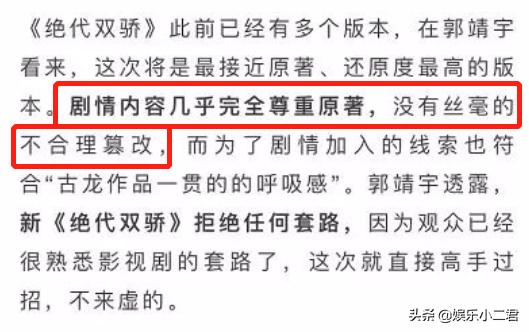Unit 3 Topic 1 同步翻译Unit 3 Our hobbies,我来为大家科普一下关于八上英语仁爱版unit1topic 3单词?以下内容希望对你有帮助!

八上英语仁爱版unit1topic 3单词
Unit 3 Topic 1 同步翻译
Unit 3 Our hobbies
Topic 1 What's your hobby?
Section C 1a. Read and understand.
做剪贴本是一种爱好。它已经有500多年受欢迎的历史了。人们把它叫作友谊书。人们会保存照片、信、诗以及其他想要记住的东西。
现在,人们会在贴本中收集很多东西。有些人的收藏很有趣,比如世界上最蠢的想法或者世界上最丑的狗的照片。也有人可能收藏关于恶劣天气的故事。
开始做剪贴本是件很容易的事。首先,你得决定你想要收集什么。开始时只要有一个想法就够了。接下来,你需要一本有背景图片的书、剪刀和胶水。你需要用剪刀把照片或故事剪下来。你得用胶水把它们粘到有背景的纸上。
你可以忙着收集很多东西,也可以轻松的收藏几样东西。制作自己的剪贴本很有趣,你还可以跟你的朋友分享。
Unit 3 Topic 1 知识梳理
Topic1 What’s your hobby?
【重点短语】
1.in one’s free/spare time 在某人空闲时间
2.go fishing 钓鱼
3.do some outdoor activities 做一些户外活动
4.why not v.=why don’t you v.
5.enjoy/like/love doing sth. 喜欢做某事
be interested in doing 对做某事感兴趣
be fond of doing sth. 喜欢做某事
prefer doing sth. 更喜欢做某事
6.stamp collection 邮票收集
7.learn…from… 从……中学习
8.used to do sth. 过去常常做某事
be/get used to (doing0 sth. 习惯于做某事
9.get started 着手,开始
10.start/begin with… 以……开始
11.cut out 剪下
12.stick…to… 把……粘贴到……上
13.share sth. with sb. 与某人分享某物
14.finish school 毕业
15.provide sb. with sth.
= provide sth. for sb.
为某人提供某物
16.take/have a bath 洗澡
17.whether…or not… 是否
18.recite poems 背诗
【重点句型】
1.What do you often do in your free time?
你空闲时间经常做什么?
2.--Why not go out and do some outdoor activities?
--Sound good! Maybe I need a change.
--为什么不出去做一些户外活动呢?
--听起来不错,也许我需要改变。
3.--What hobbies did you use to have?
--I used to collect baseball cards.
--你过去有什么爱好?
--我过去常常收集棒球卡。
4.I am interested in playing basketball.
我对打篮球感兴趣。
5.I am fond of acting.
我喜欢表演。
6.I used to enjoy pop music, but now I don’t like it.
我过去常常喜欢流行音乐,但是我现在不喜欢它。
7.I didn’t use to go shopping, but now I like it.
我过去不喜欢购物,但我现在喜欢它。
【重点语法】
used to do用法/情态动词must/whether用法
1.I used to listen to rock music but now I collect telephone cards and paintings. (Page 53)我过去常听摇滚乐,可现在我集电话卡和画。
used to do sth. 这一结构表示过去的习惯(过去经常反复发生的动作)或状态(暗含的意思是现在已不复存在),只有一种形式,即过去式,用于所有人称。used to的否定形式为:used not to do或didn’t use to do。疑问句为Used you to... ? 或 Did you use to...?如:1)I used to go to school on foot.我过去步行上学。(暗含的意思是:我现在不再步行上学了。)2)Mary used to sleep late.玛莉过去总是很晚才睡觉。(暗含的意思是:玛莉现在睡觉不再那么晚了。)3)I used to walk along the road after supper.我过去常常在晚饭后沿着这条马路散步。4)He used not to like Peking opera, but now he’s very fond of it.他过去不喜欢京剧,但现在非常喜欢。
现在大多数人在口语中或不太正式的书面语中对否定句和疑问句常使用与do 连用的形式。例如:1)I didn’t use to like skating, but now I like it very much.我过去不喜欢滑冰,但现在很喜欢。2)Did you use to go there?你以往常去哪儿?3)There used to be a theater here, didn’t there?以前这里有一座剧院,是不是?
另外,注意be used to doing sth.与used to do sth.的区别:be used to doing sth “习惯于……,适应于……”如:1)He is used to working hard. 他习惯于努力地工作。2)He used to bring me roses when he came to see me. 过去他来看我时,常带玫瑰花。3)I’m used to doing jogging in the morning now. 我习惯于早上慢跑。be used to do sth.“某物被用来做某事”。如:1)Wood is used to make paper. 木材被用来生产纸张。2)Computers can be used to do a lot of work now. 如今电脑可用来做许多事。
2. Collecting stamps must be great fun! (Page 53)集邮肯定很有趣!
must在这里是情态动词,作用是用来表示推测,可以翻译为“想必”。如:1)Your brother must be in the school. I saw him just now.你的哥哥想必在学校。我刚才看见他了。2)Your friend must have left for Nanjing yesterday.你的朋友想必昨天已经离开去南京了。3) She thought that her present must be in the box.她以为礼物一定是在盒子里。4) You must be thirsty after a long walk.走了很长的路,你一定渴了。5) It must be ten o’clock now.现在肯定有10点钟了。情态动词must的三种否定形式:must表示“必须”时,其否定回答为don’t have to,意思为“不需要”。如:1)Must I pay back the money right now? No, you don’t have to.我必须现在偿还这笔钱吗?不,你不需要现在还。2)You must listen to the teacher carefully in class.你必须在课堂上认真听讲。must表示“推测”时,其否定形式为can’t,意思为“不可能”。如:1)I’ve seen what she is talking about, so she can’t be telling lies.我目睹了她所说的事情,因此,她不可能在说谎。2)Yesterday I received a letter from him, so he can’t be here.昨天我收到了他的信,所以说他不可能在这儿。而must not的意思为“绝对不可,不许,禁止”。如:1)You must not smoke in the hospital.你绝对不可以在医院里吸烟。2)You must not cross the road when the traffic lights are red.交通灯是红色时,你千万不能过马路。
3.He doesn’t mind whether they’re good or not. ( Page 59)他并不介意它们是否是好的。
此句为以whether引导的宾语从句。whether...or not“不论是否……”。如:1)You have to get up early everyday whether it rains or not.你必须天天早点起床,不论是否下雨。2)Whether we go or not matters little.不论我们是否去,关系不大。if与whether的区别。二者在引导宾语从句时一般可换用。如:1)I want to know if / whether it is going to rain tomorrow.我想知道明天是否下雨。2) He asked me if / whether Li Ping was at home.他问我李平是否在家。3) He didn’t understand if / whether the stranger told a lie.他不明白那个陌生人是否说的是假话。
但下列几种情况不能换用。whether 后壳紧接or not,而if一般不能。Let me know whether or not you can come.你能来还是不能来,请告诉我一声。whether引导的宾语从句可移到主句前,if则不能。如:Whether this is true or not, I can not say.这件事是否真实,我说不上。不定式前用whether,不用if。如:I haven’t decided whether to go to the cinema or to stay at home.我还没有决定是看电影还是留在家里。介词后可用whether,不用if。如:I haven’t settled the question of whether I’ll go back home.我是否回家还没有定。
【话题写作】以My Hobbies为题写一篇60词左右的短文。
My Hobbies
Different people havedifferent hobbies. I used to ride a bike and read story books. They could give melots of knowledge. I keep cats and dogs. I thought pets were very friendly andlovely, but now I like listening to music and chatting on the Internet, becausemusic can relax me after the daily work and chatting can bring me happiness andfriendship.
I have different hobbies indifferent seasons. In spring, I like flying kites. In summer, I go swimming. Ioften climb hills in fall. I like making snowmen best in winter.
--END--
,




